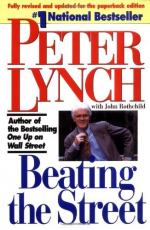|
This section contains 283 words (approx. 1 page at 400 words per page) |

|
Chapter 16 Summary and Analysis
Utility stocks have traditionally been consistent earners. They are often better than a CD because they pay a nice dividend and normally appreciate in value over the course of several years. Troubled utilities can be excellent investments. A troubled utility almost has to fix itself because they are regulated by the government and the population has to have electricity. A utility may declare bankruptcy or eliminate its dividend, but it is going to have to stay in operation.
With several distressed utilities to choose from at the end of 1991, Lynch looked to CMS Energy, the utility company of Michigan. The company had done very well until it built a nuclear plant that regulators would not allow them to operate. Its stock fell from $20 to $4.50 in 1984. The company was forced to take a $4 billion write off-the cost of building the plant. Despite...
(read more from the Chapter 16 Summary)
|
This section contains 283 words (approx. 1 page at 400 words per page) |

|




